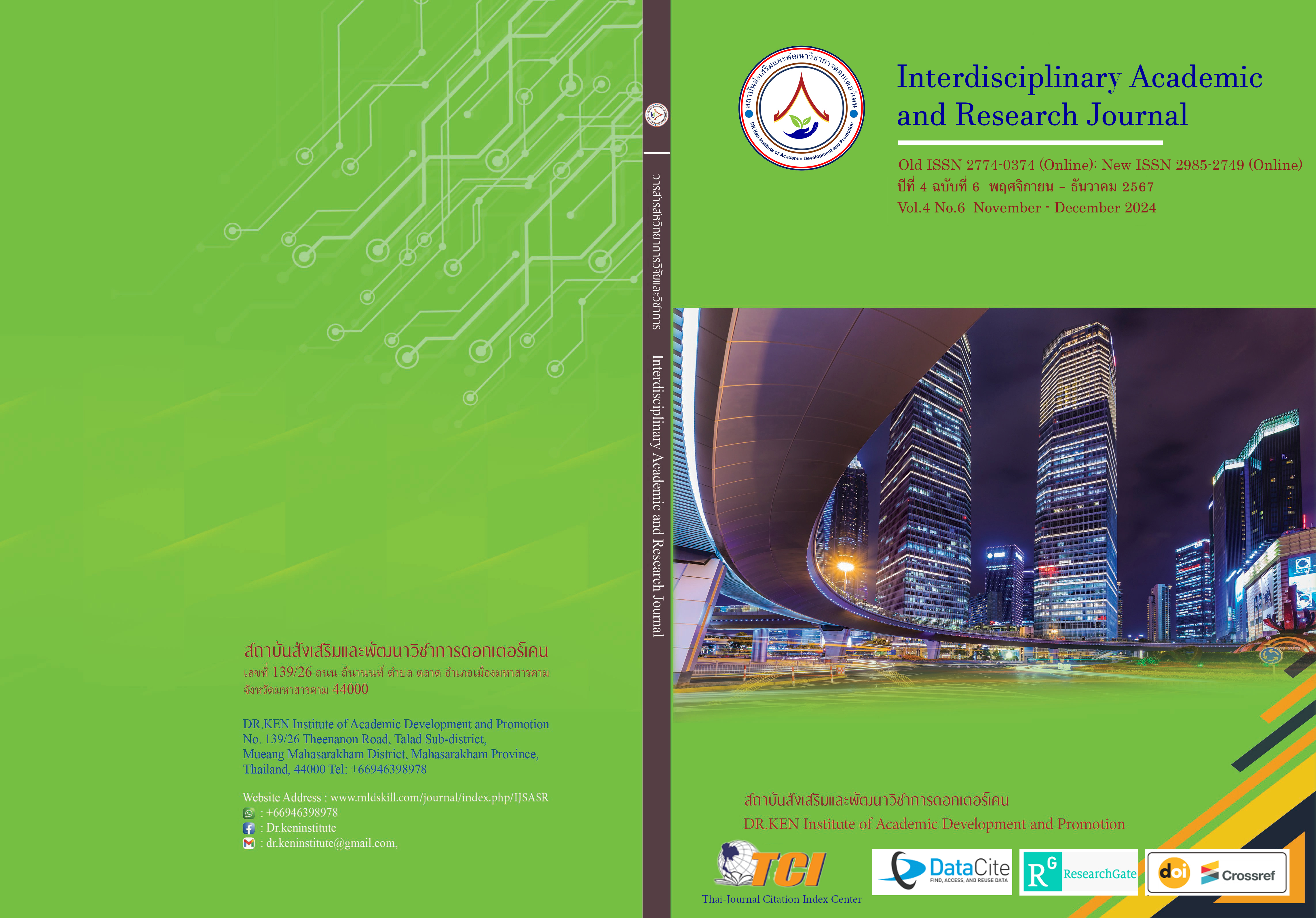Development of an Information and Communication Technology Literacy Evaluation Model for Vocational College Students in Guangxi
DOI:
https://doi.org/10.60027/iarj.2024.279345Keywords:
Elements, ICT Literacy, Evaluation ModelAbstract
Background and Aims: As the global digitalization process accelerates, the rapid development and widespread application of new ICT technologies, such as AI, cloud computing, big data, blockchain, and the metaverse, have made digitalization the main driver of global social and economic development. Evaluating the ICT literacy of vocational college students is crucial for enhancing their ICT skills and serves as an important foundation for their future career development. This study aims to: 1) investigate the current issues and solutions in the assessment of ICT literacy among vocational college students in Guangxi, and 2) develop an ICT literacy evaluation model.
Methodology: The research methods include semi-structured interviews and the Delphi technique. This study successfully constructed an ICT literacy evaluation model for vocational college students in Guangxi and provided corresponding recommendations, aiming to offer theoretical references and practical guidance for improving students' ICT literacy.
Results: Social responsibility and vocational competency are two components of the ICT literacy model that Guangxi vocational students use to improve their digital literacy and problem-solving abilities. It supports the creation of successful curricula, enhances instructional strategies, and harmonizes evaluation procedures. Curriculum development and educational policies are informed by this model, which also gets students ready for the workforce.
Conclusion: For Guangxi vocational students, the ICT literacy model improves digital skills, problem-solving abilities, and vocational competence, helping to prepare them for the workforce. It also supports the creation of successful curricula and informs policy in education.
References
Deil-Amen, R. (2011). Socio-academic integrative moments: Rethinking academic and social integration among two-year college students in career-related programs. The Journal of Higher Education, 82(1), 54-91.
Huang, X., & Wen, L. (2019). Construction of evaluation index system of information literacy of higher vocational students under the background of education informatization 2.0. China Educational Technology & Equipment, 18, 49-52.
Liu, Y. (2023). Research on the improvement of digital literacy of vocational college students: An empirical survey based on 1051 vocational college students in Hunan Province. Journal of Hunan Polytechnic of Technology, 1, 011. https://doi.org/10.13787/j.cnki.43-1374/z.2023.01.011
Ministry of Education of China. (2018). Notice of the Ministry of Education of the People's Republic of China on Printing and Distributing the "Action Plan for Education Informatization 2.0". Bulletin of the Ministry of Education of the People's Republic of China, 4, 118-125.
Peng, F., Guo, M., Zheng, C., Wang, S., Wang, X., & Xu, M. (2023). An assessment model of digital literacy for the students in vocational education based on principal component analysis in machine learning. In 2023 IEEE 6th Information Technology, Networking, Electronic and Automation Control Conference (ITNEC) (Vol. 6, pp. 1382-1386). IEEE.
Sun, X., Luo, Y., & Li, S. (2020). Digital literacy in the era of globalization: Connotation and assessment. World Education Information, 33(8), 13-17.
Wu, X., & Li, G. (2019). Analyzing ICT literacy assessment through the ICT survey in PISA 2021: Analysis and implications. Foreign Primary and Secondary Education, 9, 19-26, 18.
Xing, Z., & Yu, H. (2023). Discussion on the impact of artificial intelligence on education development and countermeasures. Journal of China Multimedia and Network Teaching, 6, 9-12.
Zhu, S., Yang, H. H., Wu, D., & Chen, F. (2021). Investigating the relationship between information literacy and social media competence among university students. Journal of educational computing research, 59(7), 1425-1449.
Zhu, T. (2021). Construction of evaluation system of information literacy ability of higher vocational students under the "Double High Plan". Journal of University Library and Information Science, 39(1), 32-37.
Downloads
Published
How to Cite
Issue
Section
License
Copyright (c) 2024 Interdisciplinary Academic and Research Journal

This work is licensed under a Creative Commons Attribution-NonCommercial-NoDerivatives 4.0 International License.
Copyright on any article in the Interdisciplinary Academic and Research Journal is retained by the author(s) under the under the Creative Commons Attribution-NonCommercial-NoDerivatives 4.0 International License. Permission to use text, content, images, etc. of publication. Any user to read, download, copy, distribute, print, search, or link to the full texts of articles, crawl them for indexing, pass them as data to software, or use them for any other lawful purpose. But do not use it for commercial use or with the intent to benefit any business.
















.png)


